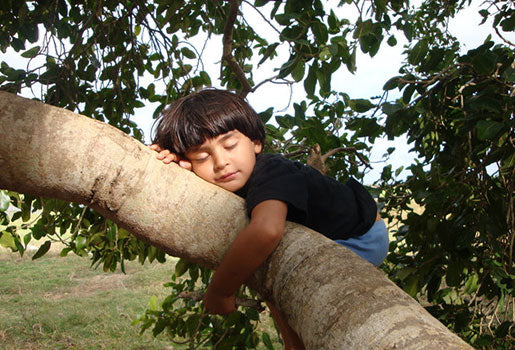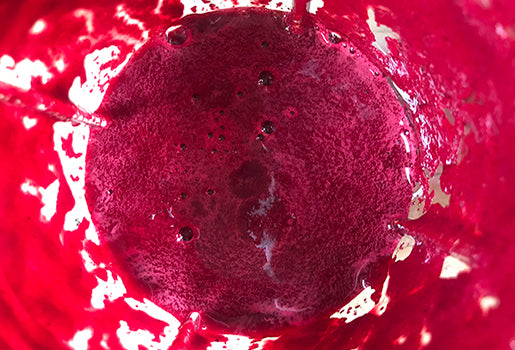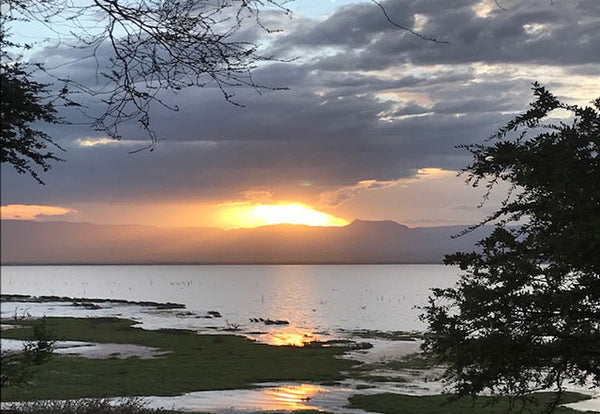Preparing Children to be the Earth Warriors of Tomorrow


Global warming. Droughts. Trash piles floating in our ocean the size of Texas--some say much larger. Our collective addiction to material possessions. What is the cause of all of this? It's not just climate change and capitalism. It's our disconnectedness to nature. And this is what we are subconsciously teaching our children.
I have one of the greatest jobs on earth where I get to teach kids how to reconnect with nature. Using permaculture techniques and my own experiences from life as a jungle baby, I get to prepare children with the skills to take care of our earth when they inherit it from us. This is what the Founder of Beyond Organic Design, Monica Ibacache, envisioned when she created her NGO.
While it's quite befitting (considering who I am) and immensely rewarding, there are daily challenges that leave me in utter despair. As a mother of two, an earth warrior, an avid advocate for food sovereignty, and a believer in holistic traditional practices that embrace living in harmony with nature, I can comfortably say that the ecological problems we face today will only get worse if we continue to teach our children that they are separate from nature. Growing up separate from nature is how the disconnectedness starts.
I know many will disagree but the fact is, we have equated wealth to modernization, and modernization to progress, and progress to development, and development to wealth. It's a state-of-the-mind trap that lends no room for oneness with nature because, in this equation, nature is the antithesis of progress and development. Nature only becomes something we see around us, something we interact with when we want shade or when we want to smell a nice flower. Nature is a park with benches and grass we cannot run on. There is us and then there is nature. Nature has dirt, and dirt is bad. Don't take off your shoes because it's dangerous. Nature is dangerous. Don't touch the soil because the soil has germs. One of my assistants used to screech when I would let the kids play with the soil. "I can't", she said. "I just can't understand how you can let them touch that stuff. I hate getting dirty." She later said, "I think it was my mother's doing because she never let us play with dirt; she was afraid we'd be dirty, and she never wanted us to look bad." I grew up with an uncle who thought the same way. And this line of thought is not uncommon; it's the conditioning done unto our society as we are desperate to distinguish ourselves from the "primitive", it is to demonstrate some sort of sophistication to prove that we are evolved and civilized.
As a result, we subconsciously inhibit children's interaction with nature. Not only do we end up stunting their creativity, but we also prevent kids from bonding with nature, from truly appreciating the myriad values nature has to offers us. But then we expect kids to be able to inherit our earth and protect it? How, if they are never given the chance to know or feel nature? Who will fight for the animals, rivers, oceans, and trees with passion and zeal if nature is only seen as a resource, a commodity, a convenience, or a distant "other", and not something you love, connect to and have a deep relationship with?
How Do You Prepare Children to Be the Earth Warriors of Tomorrow?
You help them (re)build that bond with Nature in 5 simple ways:
- Let your child(ren) run barefoot on grass: teach them that the energy of the earth (the negative charge) helps neutralize the positive charge in the human body, making us calmer and rebalanced. Tell them simply that this is how you feel the heartbeat of the earth. I promise they will understand. (Also tell them about the amazing tool humans have to protect us from harm: our eyes).
- Allow them to play in the dirt. Don't let getting dirty stop them. We want them to feel good and safe with nature--this is how friendships start.
- Make herbal remedies for small common discomfort (later you can get fancy and use herbs to cure serious illnesses). When they have a sore throat, give them honey, lemon, and grated garlic, and explain to them that this is nature's remedy to disinfect, soothe and strengthen them. Explain how nature has all that we need to cure ourselves because nature loves us. And in return, we love her back.
- Let your kiddos climb trees! I can't begin to explain how important this is; any child waiting to climb a tree is innately seeking to bond with another soul--the soul of a tree. That's the intuitive child who is far more evolved than us adults, and subconsciously knows the healing benefits of connecting with a tree. This is where the love starts. It's their way of connecting. Teach them how to do it so they don't fall. Don't tell them that they're hurting the tree by climbing on it for the act of climbing doesn't hurt the tree--and if you ever observe their faces when you tell them "No!" because they'll hurt it, you'll notice they are completely confused, as if wondering "how can I hurt it, if I just want to play with it". What hurts the tree is breaking branches and pulling off leaves--teach them to not do that. Trees love when we give them love and children know how to do it when given the space and freedom to do so.
- Teach them how to value all life forms. One of my favorite permaculture principles is Use and Value diversity. I love this one because it lends itself to be a lesson for society and our connectedness to one another despite our physical or cultural differences. But when referring to nature, and teaching kids (including my own) to be earth warriors I use this principle to get kids to start considering the wonders of other life forms. Each creature has a purpose--maybe not an obvious one. But there is one. And sometimes it's purpose isn't directly related to us humans, and that's even more important to know because simply put, we humans are not the center of the world. There are connections that are of utmost importance for the maintenance of a healthy eco-system and though we may not also see those connections, we have to always mind them. Valuing one and other for all that they do and don't do allows us to eventually understand that we are part of something bigger.
Try starting with these 5 techniques to nurturing a love for our earth. Tell me if you notice a difference in your child.
Here's to our Earth Warriors of Tomorrow!
Leave a comment
Comments will be approved before showing up.



